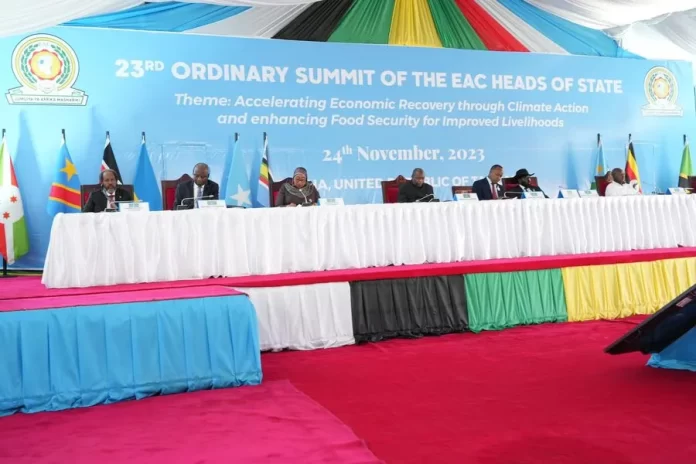The admission of Somalia into the East African Community (EAC) carries several potential implications and outcomes, encompassing economic, political, social, and diplomatic aspects. While the specifics will unfold over time, here are some anticipated developments:
Economic Growth and Trade Expansion:
Somalia’s entry into the EAC is expected to boost economic growth for both Somalia and the existing member states. The larger market size, now exceeding 300 million people, will provide increased opportunities for trade and investment.
Removal of trade barriers and customs duties will facilitate the movement of goods and services, promoting economic integration and collaboration. Somalia, in particular, stands to benefit from access to a broader market for its products.
Infrastructure Development:
As part of the EAC, Somalia may benefit from joint infrastructure projects aimed at improving connectivity within the region. Shared initiatives could include transportation networks, energy infrastructure, and digital connectivity, enhancing economic efficiency.
Knowledge Transfer and Capacity Building:
Collaboration within the EAC often involves knowledge transfer and capacity-building programs. Somalia, as a newer member, may receive support and expertise from existing members in various sectors, contributing to the nation’s overall development.
Political and Diplomatic Cooperation:
EAC membership fosters stronger political ties among member states. Somalia’s inclusion may lead to increased diplomatic cooperation and coordinated efforts on regional and global issues.
Joint initiatives to address common challenges, such as security threats, environmental concerns, and public health issues, may strengthen political stability and security in the region.
Cultural and People-to-People Connections:
The EAC promotes people-to-people connections, cultural exchange, and tourism. Somalia’s inclusion will likely contribute to a more interconnected East Africa, fostering understanding and collaboration among diverse communities.
Security Challenges and Cooperation:
Somalia’s admission may pose security challenges, given the nation’s struggle against groups like al-Shabab. However, EAC member states have a history of cooperating on security matters. Joint efforts and intelligence-sharing may increase to address shared security concerns.
Challenges and Adjustments:
Integration into the EAC will not be without challenges. Disparities in economic development, governance, and infrastructure may require concerted efforts to ensure a smooth transition for Somalia.
The EAC and Somalia will need to address potential hurdles related to governance, human rights, and rule of law, as highlighted by some analysts.
Regional Stability and Conflict Resolution:
The EAC’s role in promoting regional stability may extend to assisting Somalia in conflict resolution and peacebuilding. Collaborative efforts could contribute to the resolution of historical disputes and conflicts in the region.
Institutional Strengthening:
Somalia’s engagement in EAC activities will likely involve efforts to strengthen its institutions, align policies, and adhere to the standards and frameworks established by the regional bloc.
In summary, Somalia’s entry into the East African Community represents a significant step toward regional integration. The outcomes will depend on the commitment of member states, effective cooperation, and the ability to address challenges collaboratively. The integration process is expected to be dynamic, with both opportunities and adjustments as Somalia becomes an active participant in the EAC community.
Author: Ridwan Yusuf Mohamud
Editor in Chief of Somali Magazine

